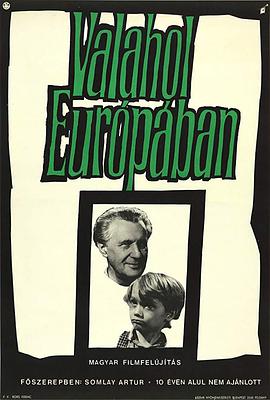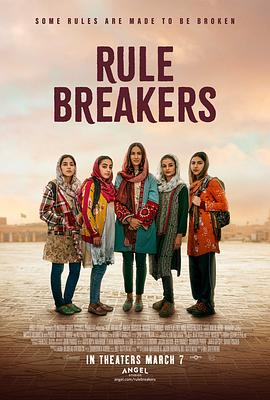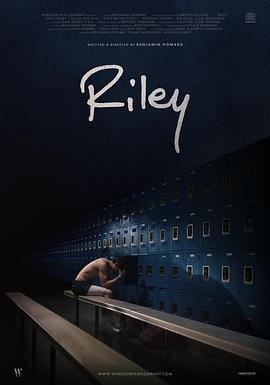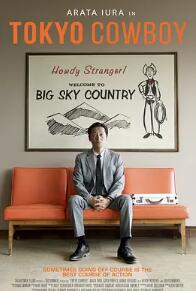
- 欧洲的某个地方
- 主演:Artúr Somlay,Miklós Gábor,Zsuzsa Bánki
- 类型:剧情
- 导演:Radványi Géza
- 地区:其它
- 年份:1948
- 语言:其它
- 备注:DVD
- 更新:2025-01-15
- 播放列表
- 量子云
倒序↓顺序↑
- 下载地址
- 相关影片

人人都爱杜达
尼斯林·艾拉丁,Joud Chamihy,Jalila Talemsi,Lahcen Razzougui,El Moustafa Boutankite,阿卜杜拉提夫·查乌奇,Abderrahim El Maniari,Elmaniari Abderrahim,穆阿德·拉斯马克,Khalil Oubaaqa,Imane Samite
剧情片
2024/摩洛哥,法国,丹麦,瑞典,挪威,比利时
HD

豪门新娘
秋庄,矫明俊,红云,梁氏梅琼,黄苑恩,黄氏·塞缪尔·安
剧情片
2024/越南
HD

逾矩之人
菲比·沃勒-布里奇,
剧情片
2025/美国
HD

莱利
Jake Holley,Colin McCalla,Riley Quinn Scott,Connor Storrie,里比·希利斯,J.B. Waterman,René Ashton,Marcus Winchester-Jones,Nigel Siwabessy,Dallas Perry,Alyssa Latson,Caroline Amiguet,Miranda Guiles,Hunter Linton,Jose Rico,赛迪·司各特,Luca Vega,卡莱蒂·威廉姆斯
剧情片
2023/美国
HD

彩排第二季
内森·菲尔德
剧情片
2025/美国
更新至第01集

东京牛仔2023
井浦新,罗宾·薇格特,国村隼,丝科特·史密斯,藤谷文子,斯蒂芬妮·埃尔南德斯,戈雅·罗伯斯,邓肯·维扎因,路易斯·乔斯·洛佩斯,加布里埃尔·克拉克,斯科特·麦考利,杰夫·梅德利,Marisilda,Garcia,珍娜·西拉利,George,De,Vries,岩松了,Gerald,Penn,Cara,Wilder,Rob,Story,Zac,Thomas
剧情片
2023/美国
HD
- 简介
Somewhere in the remote region, the war ends. In the midst of ruined cities and houses in the streets, in rural hamlets, everywhere where people still live, are children who have lost their homes and parents. Abandoned, hungry, and in rags, defenseless and humiliated, they wander through the world. Hunger drives them. Little streams of orphans merge into a river which rushes forward and submerges everything in its path. The children do not know any feeling; they know only the world of their enemies. They fight, steal, struggle for a mouthful of food, and violence is merely a means to get it. A gang led by Cahoun finds a refuge in an abandoned castle and encounters an old composer who has voluntarily retired into solitude from a world of hatred, treason, and crime. How can they find a common ground, how can they become mutual friends? The castle becomes their hiding place but possibly it will also be their first home which they may organize and must defend. But even for this, the price will be very high.
To this simple story, the journalist, writer, poet, scriptwriter, movie director, and film theoretician Béla Balázs applied many years of experience. He and the director Géza Radványi created a work which opened a new postwar chapter in Hungarian film. Surprisingly, this film has not lost any of its impact over the years, especially on a profound philosophical level. That is to say, it is not merely a movie about war; it is not important in what location and in what period of time it takes place. It is a story outside of time about the joyless fate of children who pay dearly for the cruel war games of adults.
At the time it was premiered, the movie was enthusiastically received by the critics. The main roles were taken by streetwise boys of a children's group who created their roles improvisationally in close contact with a few professional actors, and in the children's acting their own fresh experience of war's turmoil appears to be reflected. At the same time, their performance fits admirably into the mosaic of a very complex movie language. Balázs's influence revealed itself, above all, in the introductory sequences: an air raid on an amusement park, seen in a montage of dramatic situations evoking the last spasms of war, where, undoubtedly, we discern the influence of classical Soviet cinematography. Shooting, the boy's escape, the locomotive's wheels, the shadows of soldiers with submachine guns, the sound of a whistle—the images are linked together in abrupt sequences in which varying shots and expressive sharp sounds are emphasized. A perfectly planned screenplay avoided all elements of sentimentality, time-worn stereotypes of wronged children, romanticism and cheap simplification. The authors succeeded in bridging the perilous dramatic abyss of the metamorphosis of a children's community. Their telling of the story (the scene of pillaging, the assault on the castle, etc) independently introduced some neorealist elements which, at that time, were being propagated in Italy by De Sica, Rossellini, and other film artists. The rebukes of contemporary critics, who called attention to "formalism for its own sake" have been forgotten. The masterly art of cameraman Barnabás Hegyi gives vitality to the poetic images. His angle shots of the children, his composition of scenes in the castle interior, are a living document of the times, and underline the atmosphere and the characters of the protagonists. The success of the picture was also enhanced by the musical art of composer Dénes Buday who, in tense situations, inserted the theme of the Marseilaise into the movie's structure, as a motive of community unification, as an expression of friendship and the possibility of understanding.
Valahol Europaban is the first significant postwar Hungarian film. It originated in a relaxed atmosphere, replete with joy and euphoria, and it includes these elements in order to demonstrate the strength of humanism, tolerance, and friendship. It represents a general condemnation of war anywhere in the world, in any form.